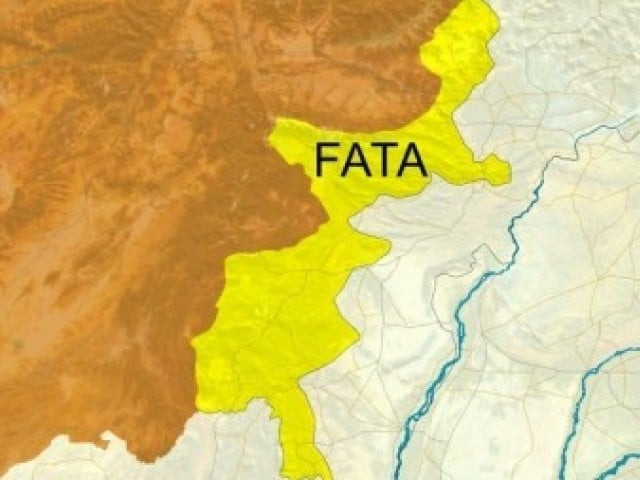Hit by divisions: Technical glitches make Fata reforms hard to implement
According to officials privy to the report, the final draft was different from what was actually agreed upon

A map of FATA
The committee, headed by Adviser on Foreign Affairs Sartaj Aziz, is divided over the merits of some of the recommendations, with Minister for State and Frontier Regions Abdul Qadir Baloch expressing displeasure over the finalised version of the report.
The panel, constituted by PM Nawaz Sharif on November 8 last year, includes National Security Adviser Lt-Gen (r) Nasser Khan Janjua, Law and Justice Minister Zahid Hamid and Safron Minister, Lt-Gen (retd) Abdul Qadir Baloch.
“He (Baloch) was angry over some of the recommendations which were incorporated in the final report without his approval,” an official of the Safron ministry said, adding the minister could not attend the last few meetings of the committee because of illness.
He protested before the committee members before the report’s launch on August 25.
According to officials privy to the report, the final draft was different from what was actually agreed upon during the meetings held by the committee, and it did not recommend the merger of Fata with Khyber-Pakhtunkhwa. Instead, the original version called for retaining the special status of the tribal areas along with introducing ‘parallel’ reforms and carrying out ‘concurrent’ development there.
Moreover, the major criticism faced by the committee is that the biggest stakeholder in the whole process, K-P, was not even consulted at any level, except the presence of the K-P governor who represents the federation and took charge of his office in March.
In case Fata is merged with K-P, the area would not be able to send five lawmakers to the National Assembly as is currently the case. The strength of Fata lawmakers would come down because Orakzai, South Waziristan, Kurram and Bajaur would be merged with other areas owing to their thin population density, thus making the future of lawmakers from these agencies uncertain. And there will be no senator from Fata, because the upper house has equal representation.
Two days before making the report public, the reforms committee met with Fata lawmakers who refused either to give their assent or reject any recommendation(s) of the report because details were not shared with them. Now they will submit their input individually by Tuesday.
Other ‘undoable’ recommendations in the report are: about 3% of the divisible pool in the National Finance Commission will be allocated to the area for 10 years to execute economic development plan for Fata.
Speaking on the condition of anonymity, a lawmaker commented on what would happen after 10 years. “Similarly, how will the provinces allow the federal government to let Rs90 billion go for Fata when they are already asking for more from that pool,” he said.
Muhammad Jamaldin, an incumbent government lawmaker from South Waziristan, said people and several stakeholders were not satisfied with some of the recommendations.
He also stated that first temporarily displaced persons should be resettled and then they (the committee members) should talk about the implementation of such reforms.
“First, they should send those people back to their homes and let them settle, and then ask them to follow the rules and reforms.”
Published in The Express Tribune, September 3rd, 2016.



















COMMENTS
Comments are moderated and generally will be posted if they are on-topic and not abusive.
For more information, please see our Comments FAQ